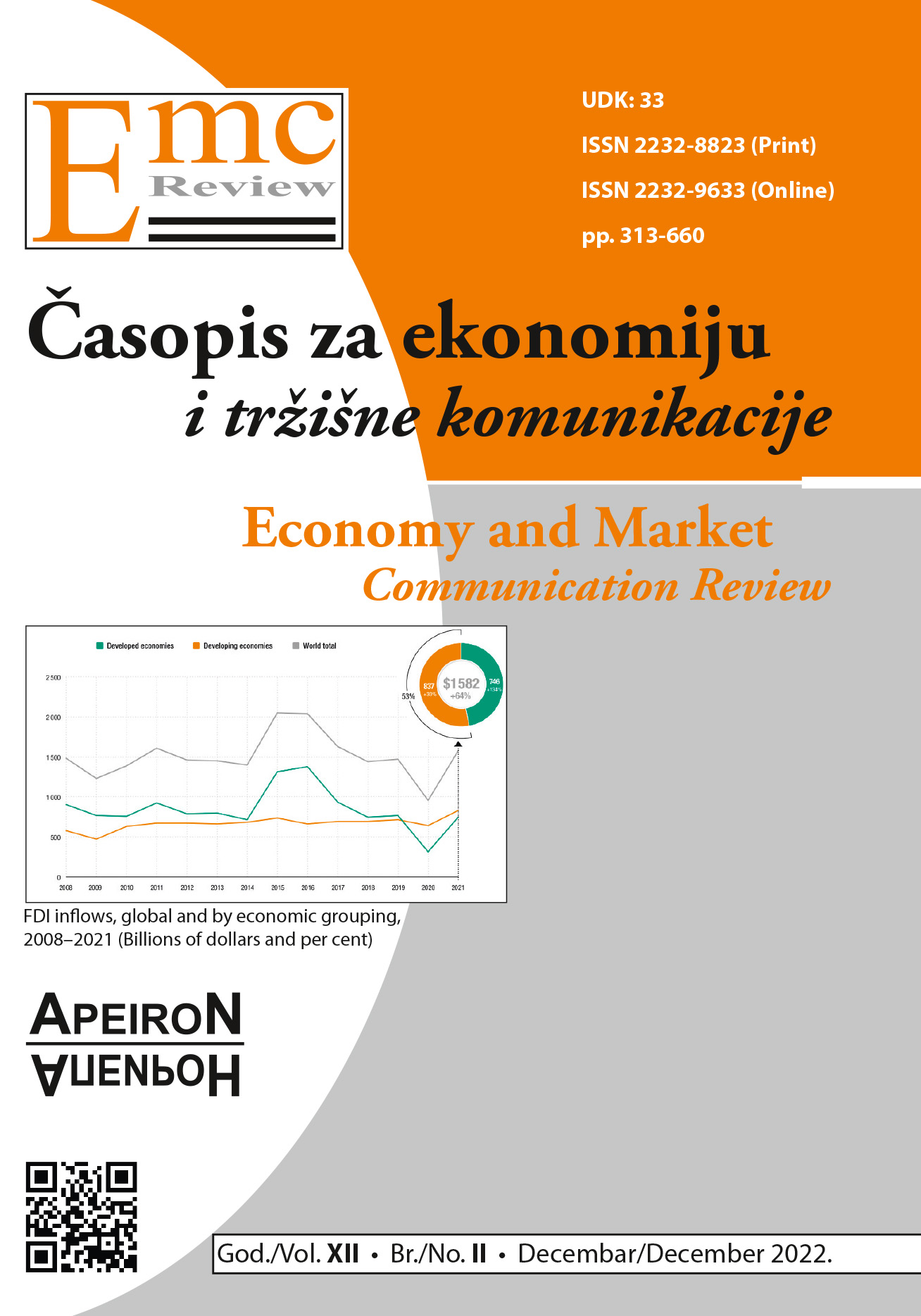CUSTOMER SATISFACTION SURVEY WITH THE QUALITY OF TELECOMMUNICATIONS SERVICES
DOI:
https://doi.org/10.7251/EMC2202320BAbstract
The reason for researching the satisfaction of the student population with telecommunications services in the Republic of Croatia is related to the time of the COVID-19 pandemic and online classes, where numerous problems have been shown in the functioning of transmission and data exchange technology over the Internet. 164 students studying in the Republic of Croatia participated in the research. Three research goals were set, which are presented through research goals and hypotheses. For the hypothesis H1, a statistically significant correlation between the customer satisfaction variable with the quality of services of the current telecommunications operator and the satisfaction with the speed of the internet of the current teleoperator was identified (ρ = 729, p < 05). The H2 hypothesis identified a statistically significant connection between the customer satisfaction variable with the quality of services of the current telecommunications operator and the satisfaction with the price of the service of the current telecommunications operator (ρ =, 685, p <, 05). When processing the hypothesis H3, a statistically significant correlation between the customer satisfaction variable with the quality of services of the current telecommunications operator was identified) and the work of customer service. (ρ =, 677, p <, 05). The regression analysis (Forward method) included 10 predictor variables. Four predictor variables have identified statistically significant predictive capacity. Other variables do not have a statistically significant contribution and models in which they are included are not considered further. With four predictor variables, 71.3% of the variance of the criteria is explained (dependent variable: satisfied/on the quality of service of the current operator). Variables that have a statistically significant predictive value are as follows: Satisfaction with the quality of service of the current operator). The variables that have a statistically significant predictive value are the following: Satisfaction with the Internet speed of the current operator (β=0.311, t=7.081, p<.5), Satisfaction with the price of the current operator’s service β=0.232, t=5.197, p<.5), Satisfaction with customer service of the current operator (β=0.210, t=4.368, p<.5), I believe that my consumer rights are respected by the telecommunication operators β=0.108, t=2.386, p<.5). These findings are applicable to companies whose activities are related to the telecommunications industry, since user satisfaction is the most frequently investigated variable in all numerous research so far. Recommendations for future research include the need to repeat the survey in order to test previous predictor variables and identify new variables, if any. The variable “I believe that my consumer rights are respected by telecommunications operators” has so far not been identified by regression analysis in any previous survey. Many researches have been conducted from the beginning of 2000 to 2010, and after that their number is decreasing. Since we are in the digital age and the importance of IoT is growing, and experience with the quality and strength of signals, and hence the quality of services are different, the importance of carrying out these investigations is increasing.
